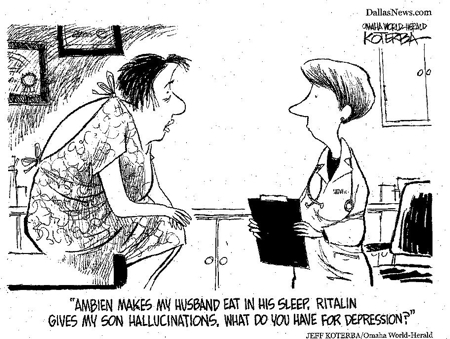Question: If Effexor XR helps decrease the amount of serotonin and norepinephrine uptake in the case of GAD, then why does it feel like I am racing all the time?
— Ryan
Answer: Generalized Anxiety Disorder presumably is due to genetic vulnerability, personality traits, and stress. We know of one specific genetic variation that alters serotonin levels. Giving an anxious person meds that stimulate serotonin receptors or norepinephrine receptors (e.g., metabolite of Trazodone or Yohimbine) increases anxiety.
Giving Effexor, especially at higher doses, may initially worsen anxiety symptoms since it initially increases levels of serotonin and norepinephrine. But over a period of 2-3 weeks or more on Effexor, symptoms improve – presumably related to down regulation of both of these transmitters. 225 mg of Effexor usually works better than 150, and 150 works better than 75. At 225 effects on norepinephrine and serotonin are about equal. At 75 the effects are mostly on serotonin.
Some people with GAD do well on just an SSRI like Lexapro. You may be supersensitive to the norepinephrine effect of Effexor and would do better on Lexapro. Other possibilities include some bipolar gene that results in being overstimulated by an antidepressant.
Taking a benzodiazepine like Niravam might help with “racing.” Klonopin might be better if your thoughts are racing.
Anxiety symptoms can be associated with many conditions. Physiology of norepinephrine and serotonin are complicated, especially for serotonin, because there are more than 10 different types of serotonin receptors, any of which can be too high or low. Each of these transmitters also does different things in different areas of the brain.
In the future we will be able to better predict your medication response by looking at your specific genetic profile and other brain function parameters. For now, if you can’t find a dose of Effexor that helps without causing significant side effects, you need to phase off and try other meds. You may also need a reevaluation to look for other possible causes of your symptoms. The average person with a significant anxiety or mood disorder has a total of 3 different diagnoses. This phenomenon of frequent comorbidity is mostly due to the “blind men and the elephant” problem. We just don’t have the full picture yet of how the mind and brain work.

